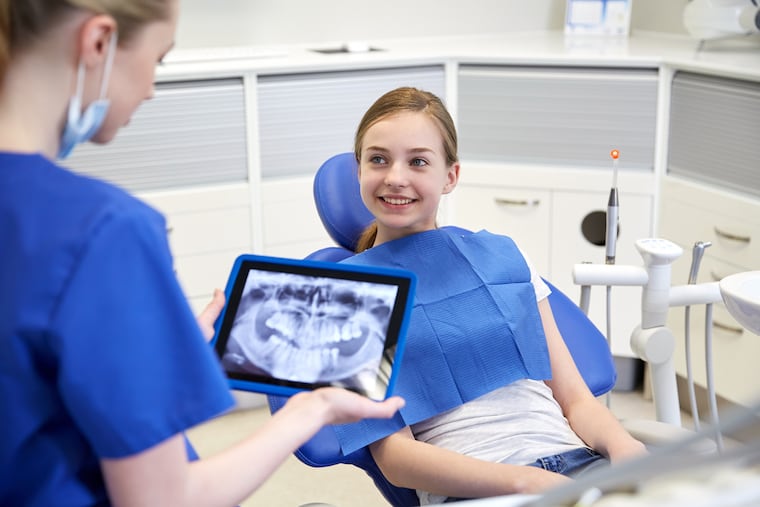For some teens, opioid addiction begins after wisdom tooth extraction
Five million people — mostly teenagers and young adults — have their wisdom teeth removed each year. The post-procedure pain can be significant.

Let’s talk. We all have teeth and at some point in our lives each of us may experience dental pain. A recent study in JAMA Internal Medicine, however, highlights the association between teenagers getting opioids for their dental pain following wisdom teeth extractions and opioid addiction.
In 2017, more than 70,000 persons died of drug overdoses in the United States, according to the Centers for Disease Control and Prevention. Although the data doesn’t break it down, I’m concerned that some of these deaths were teenagers who got addicted after being prescribed opioids for their wisdom teeth extractions, and others may be adults who got addicted as teenagers under the same circumstances.
There’s no debate that wisdom teeth may need to come out. Five million people — mostly teenagers and young adults — have their wisdom teeth removed each year. This oral surgery is usually a short procedure and healing should take only a few days. The post-procedure pain, however, can be significant. Many teens get their first opioid prescriptions, like Tylenol # 3, Percocet or Vicodin, for pain at this time. But do they really need all the medication that has been prescribed?
In a 2016 study, of patients who had dental surgery and were prescribed opioid pain relievers, most filled their prescriptions, but more than half of the pills remained unused three weeks later, according to an article published in Drug and Alcohol Dependence. The researchers estimated that overprescribing could add an extra 100 million opioid pills to American medicine cabinets each year! These left-over pills may wind up in the wrong mouths.
Teenagers may use those leftover pills even if they don’t need them. Then they may go looking for more, and they may become addicted. A recent study out of Stanford University School of Medicine addresses this issue. Among nearly 15,000 teenagers and young adults who received initial opioid prescriptions from their dentists in 2015, almost 7 percent had additional opioids prescribed within a year, and almost 6 percent were diagnosed with opioid abuse within that time. By comparison, only a fraction of those who did not receive an opioid prescription from their dentists got another opioid prescription (0.1 percent) or were diagnosed with opioid abuse (0.4 percent) over the same period.
The developing teen brain is especially vulnerable to addiction. Research now suggests that the human brain is still maturing during the adolescent and young adult years. Teens’ brains may be particularly vulnerable to the acute effects of drugs and drug use may significantly increase a young person’s risk for developing a substance use disorder.
The American Dental Association says enough is enough. Dentists and oral surgeons should limit opioid dosage and duration for acute pain to no more than seven days, according to new recommendations from the ADA. Instead, they should first consider prescribing non-opioid painkillers like ibuprofen or acetaminophen.
Some pearls of wisdom for parents:
Be the gatekeeper for medications, including those prescribed after wisdom teeth extraction. Don’t just hand your teen the bottle of pills after surgery. And be sure to properly dispose of leftover prescription drugs. You can search online for convenient drug drop-off locations in Pennsylvania, New Jersey and Delaware.
Talk with your adolescents about your expectations that they will not use drugs and alcohol because (sometimes) they really do listen to you. Research confirms that when parents talk to their children about drugs and alcohol, those children are much less likely to become users. Not sure how to start the talk? The American Academy of Pediatrics has a useful resource.
Rima Himelstein, MD, is a Crozer-Keystone Health System pediatrician and adolescent medicine specialist.